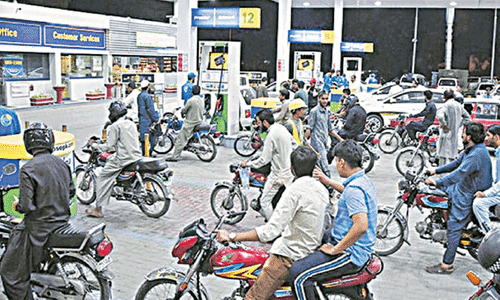We should have no qualms about confessing that issues pertaining to women are consigned to oblivion in our society. Often these issues are subjected to bigotry disguised as patriarchy. It’s true that each productive step towards gender equality is met with stronger measures to undermine it. For example, domestic violence has never been treated as a real issue in our society (a recent bill that would have legally recognised domestic violence as a crime was passed over by the Senate). As absurd as it may sound, most public condemnations against domestic violence are silenced by victims’ family members, increasing pressure on women to stay in unhappy and violent relationships. Even the most holier-than-thou, moral people make an exemption for battering. But should women passively put up with all sorts of misery?
Domestic violence is not a private matter. Behind closed doors, it stays concealed, but escalates. It is protected by silence – everyone's silence. As a silent witness to misery, we share the blame. And if we remain ignorant about the prevalence of domestic abuse, it amounts to condoning violence.
This is where social intervention comes in. Sometimes, a little initiative can play its role in grievous situations. India’s ‘Bell Bajao’ (Ring the bell) campaign is one such example. This multimedia campaign called for social intervention – especially on the part of men – to bring domestic violence to a halt. The campaign emphasised simple yet effective measures: ‘Whether it's ringing a doorbell to stop a crime, or speaking out, make sure you're doing your part to ensure that women and families in your communities are living free of violence.’ Using television, radio, press ads, mobile video vans, and the internet, the campaign has already reached 124 million people across India.
Take Back The Tech is another collaborative campaign taking place during the 16 Days of Activism Against Gender-Based Violence (Nov. 25 to Dec. 10 this year). Its goal is to promote information and communications technology to end violence against women. In Pakistan, the initiative is being led by Bytesforall in collaboration with P@SHA - Pakistan Software Houses Association.
Such campaigns help familiarise people with everyday issues and provide them with a platform to explore, talk, and exchange views on issues of violence, gender equality, and changing attitudes using social media as a tool. Not only do viral campaigns focus on creating an awareness, substantial measures such as holding training sessions for activists are also implemented online. NGOs and ordinary women also use technology as a collaborative tool for empowerment by creating support networks.
The Pakistani blogosphere is exuberant when it comes to advocacy, therefore the Take Back The Tech campaign has received unanimous support from male and female bloggers alike. While bloggers do their bit on their personal pages, they also work together using different online platforms.
Pakistan’s largest blog aggregator, Teabreak, has also initiated a bloggers campaign in collaboration with the 16 Day initiative. The Laid Back Show, a webcast hosted by bloggers Faisal Kapadia and Dr. Awab Alvi, also dedicated an episode highlighting the campaign.
Online activism has not only helped people generate discussion around the issues, but also personalise it with their own stories. As blogger Fariha Akthar participates in the campaign, she makes sure to add some personal anecdotes and share tips on combating online harassment and being safe online. She cautions against cyber relationships, reminds people that online and real-life identities don’t always match up, and reminds women not to share personal information over the internet. In other words, Fariha makes a strong case for the prevalence of online harassment and highlights it as a matter that should be taken seriously. Many women out there are still unaware of the risks that come with participating in online social media platforms.
Our society battles with plethora of issues ranging from physical abuse to emotional abuse, both in the virtual and real world. Let’s hope that online awareness campaigns are a stepping stone to combating violence against women in all its forms.
Sana Saleem is a Features Editor at BEE magazine and blogs at Global Voices, Pro-Pakistan her personal blog Mystified Justice. She tweets at twitter.com/sanasaleem.The views expressed by this blogger and in the following reader comments do not necessarily reflect the views and policies of the Dawn Media Group.











































